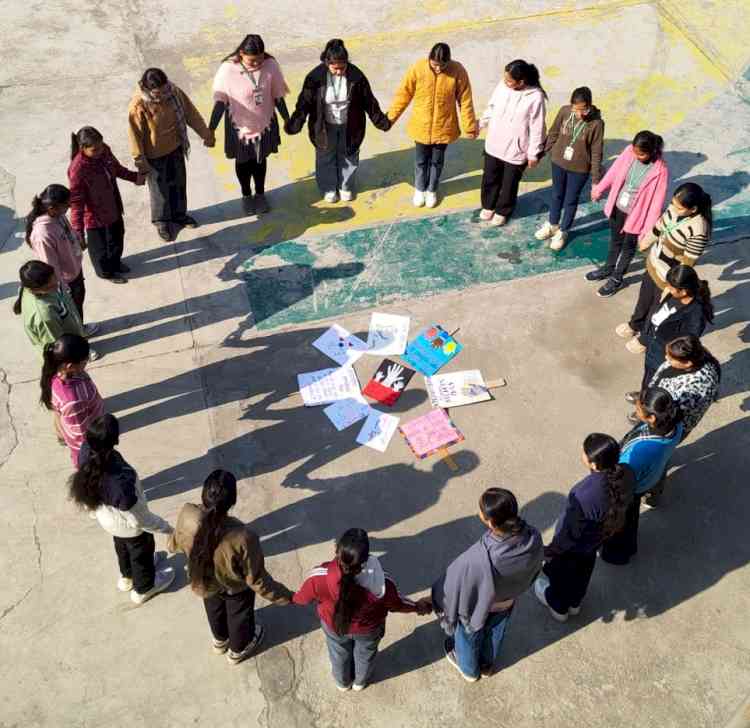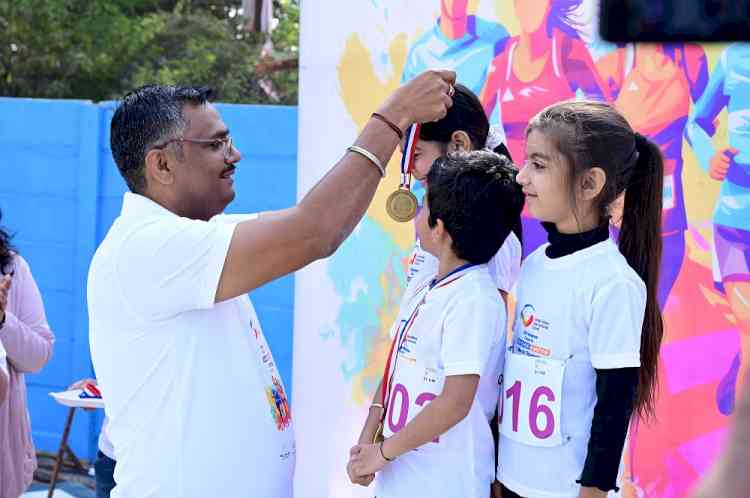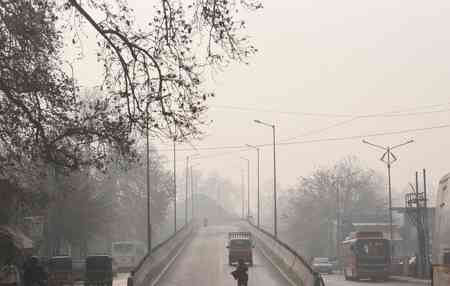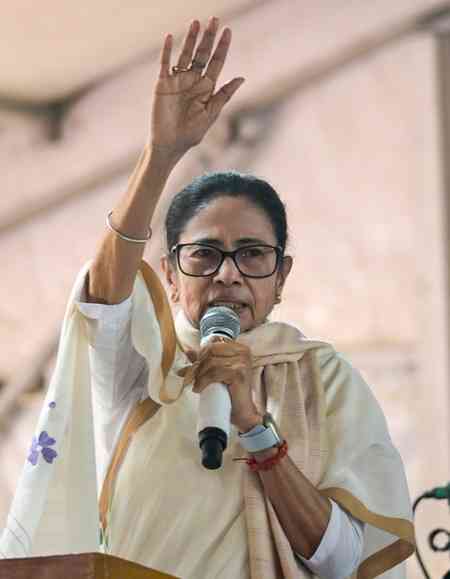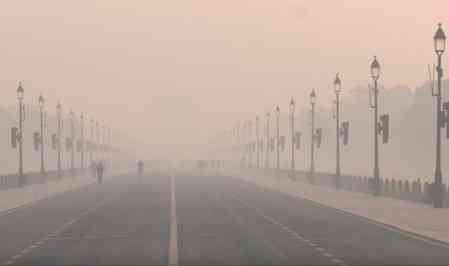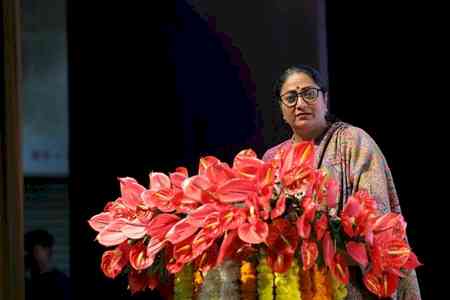Third day of DST INSPIRE camp explores the thrilling world of Forensic Science at KMV
Kanya Maha Vidyalaya (Autonomous), a pioneering institution in the field of education, continues to inspire its students to showcase their talents and potential.
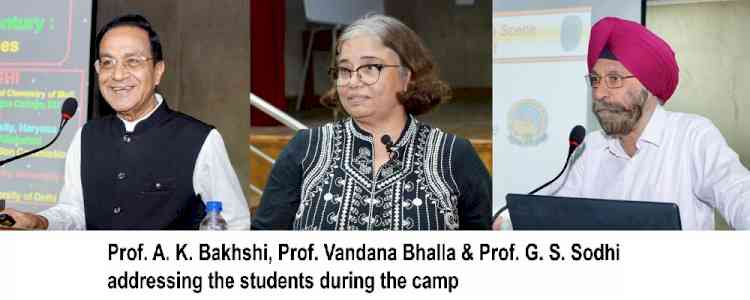
Jalandhar, October 16, 2024: Kanya Maha Vidyalaya (Autonomous), a pioneering institution in the field of education, continues to inspire its students to showcase their talents and potential.
On the third day of the distinguished INSPIRE camp, hosted by KMV, the spirit of scientific curiosity remained at its peak, with enthusiastic participation of students representing various schools. The highlight of third day of the camp was the session on Relevance of Crime Scene Management led by Prof. G. S. Sodhi, a retired Professor from the Department of Chemistry & Forensic Science at SGTB Khalsa College, University of Delhi. Prof. Sodhi, renowned for his expertise in forensic science, shared invaluable insights into the meticulous processes involved in crime scene investigations. His lecture introduced students to the critical role forensic science plays in solving crimes, from collecting and preserving evidence to analyzing it with precision. Addressing a hall filled with aspiring young scientists, Prof. Sodhi emphasized the importance of proper crime scene management in ensuring that investigations are conducted efficiently and fairly. He illustrated how minor oversights during the collection of evidence could lead to significant setbacks in criminal cases. By sharing real-life examples from his career, Prof. Sodhi painted a vivid picture of the challenges and complexities of crime scene investigations. He also explained the importance of meticulous crime scene management, emphasizing that every detail at a crime scene can provide vital evidence for solving cases. He discussed various techniques used to preserve and analyze evidence, from fingerprinting to DNA analysis, and highlighted how chemistry plays a central role in forensic science. He also shed light on the most important principle of Forensic Science titled Locard Principle, which states that there is always an exchange of matter when two objects come in contact with each other and thus, forms the basis of Forensic Science. He also explained the methods of detection of Forgeries with the help of Forensic Documentation. The technique of Narco Analysis was also explained during the session. He also acquainted everyone that the world’s first fingerprint bureau was established in 1897 at Kolkata. To bring theory into practice, Prof. Sodhi conducted a hands-on workshop where he demonstrated crime scene investigation techniques and also explained the importance of Cordon off the scene. Students were given the opportunity to observe and participate in recreating a crime scene scenario, learning how to collect and process evidence in real-time. The session was both informative and engaging, allowing students to experience the practical aspects of forensic science while understanding its real-world applications. Prof. Sodhi’s expertise and interactive teaching style left a lasting impression, sparking interest in crime scene management and its relevance to both science and law enforcement. The next speaker was Prof. A. K. Bakhshi, Founder Vice-Chancellor of PDM University, Bahadurgarh, and former Vice-Chancellor of UPRTOU, Allahabad. Prof. Bakhshi, a renowned figure in the field of education and science, spoke on the topic "Achieving Excellence in Chemistry in India in the 21st Century: Challenges and Opportunities." During his talk, Prof. Bakhshi emphasized the pivotal role of chemistry in driving innovation and solving global challenges, from healthcare to environmental sustainability. He discussed how India, with its vast intellectual potential, can emerge as a global leader in chemistry by nurturing young talent and fostering an environment of creativity and research. He highlighted the importance of interdisciplinary approaches and collaboration with international scientific communities. Prof. Bakhshi shared real-life examples of notable scientists who overcame challenges to make groundbreaking contributions. He also motivated the students with inspiring quotes, urging them to pursue excellence with passion and perseverance. His session left the audience energized, sparking a deeper interest in the field of chemistry and the opportunities it offers in shaping a better future for India. The next distinguished speaker, Prof. Vandana Bhalla, delivered an insightful and thought-provoking lecture on “From Molecular Chemistry to Supramolecular Chemistry: A Beautiful Journey,". Professor Bhalla is from the Department of Chemistry, Guru Nanak Dev University, Amritsar. Her presentation provided an in-depth look into the fascinating world of supramolecular chemistry. Prof. Bhalla explained the evolution of chemistry, highlighting the shift from studying individual molecules to exploring the interactions between molecules in supramolecular systems. She emphasized how these non-covalent interactions can lead to the formation of complex, functional structures, playing a crucial role in various fields such as drug delivery, nanotechnology, and materials science. The session was highly interactive, as Prof. Bhalla engaged the students with thought-provoking questions and encouraged active participation. Her clear and insightful explanations made complex concepts easy to grasp, while the inclusion of real-world applications kept the audience captivated. The sessions were not only informative but also highly interactive and engaging, encouraging students to actively participate in discussions and ask questions. In the evening, students actively participated in an interactive quiz, engaging hands-on experiments-FUN with Chemistry. They also explored the Chemistry labs and experienced the excitement of advanced laboratories, uncovering sophisticated research facilities and high-tech equipment. Students gained an insightful understanding of the chemical world through experiments involving advanced techniques and instruments.
Principal Prof. Atima Sharma Dwivedi expressed her gratitude to the guest speakers for providing such detailed information to the students.


 City Air News
City Air News 
